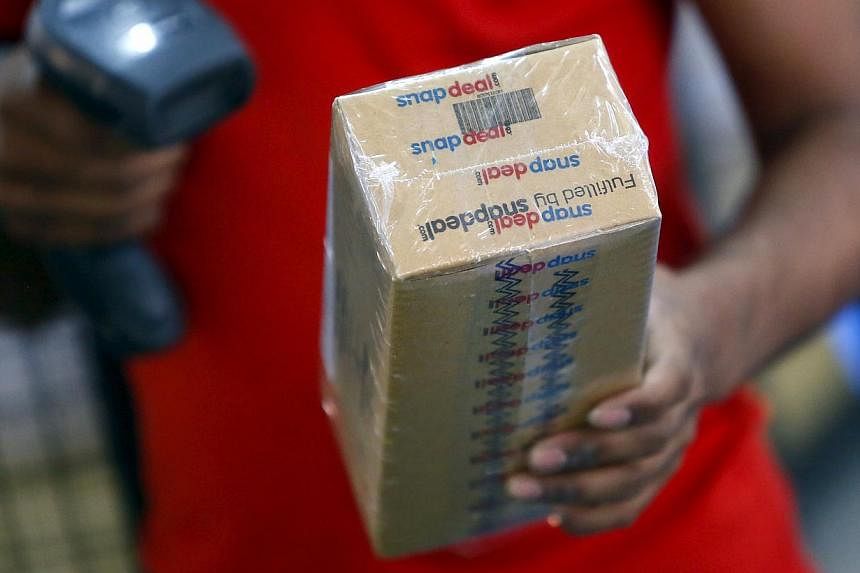NEW DELHI (Bloomberg) - Kunal Bahl's American dream was coming together in late 2007. He had Ivy League degrees in business and engineering, a debut job at Microsoft Corp. and a roadmap to the career he'd always wanted in Silicon Valley.
Then his application for a US visa was rejected and he was kicked out the country. Lucky for him.
Back in India, he got over the shock and founded a company in New Delhi with a childhood friend. Today Snapdeal.com is one of the most highly valued startups in Asia's third-largest economy, valued at about US$5 billion.
The 31-year-old is one of the thousands of a generation of engineers and entrepreneurs who quit America for home - some by choice, some because of US immigration barriers - to find a technology industry with more green-field opportunities than Silicon Valley. Many Indians aren't leaving at all, or are going to the US for degrees from Harvard and Stanford with no plans to stay after graduation.
The two governments don't keep tech-sector reverse-migration data. But Sonali Jain, a professor at the University of North Carolina, Pembroke, who studies the phenomenon, calls this "a very upbeat moment in time for India" that encourages homecomings. The constraints of the US H-1B visa program do that too. Microsoft, Google Inc., Intel Corp. and others have been lobbying Congress for years to lift the annual cap on the number of foreign nationals who can get into the country and be employed on these skilled-worker visas, but lawmakers haven't budged.
India's booming startup culture probably wouldn't feel any affects if the H-1B floodgates suddenly opened. The super-growth potential these days is east, not west. While only about 19 per cent of Indians are connected to the Internet, their numbers are mushrooming. Economic output is expanding at an annual rate of more than 7 per cent, and by some projections the country's population will reach 1.6 billion to surpass China's by 2050.
India's hard to resist. Google engineering executives Peeyush Ranjan and Punit Soni recently left the company and California for home, moving to Bangalore to join Flipkart, India's largest e-commerce company and Snapdeal's main domestic rival. Namita Gupta departed Facebook for Zomato, a restaurant-search service based in New Delhi.
The trend is a dramatic shift from the 1980s and 1990s, when a graduate education and employment in the US were the brass rings for engineers like Satya Nadella, Microsoft's chief executive officer. Now for anyone interested in programming or e-commerce or mobile-device apps, India "is like the late 1990s in the US," says Bahl, Snapdeal's CEO, who regularly fields inquiries from Indian graduates of his alma mater, the University of Pennsylvania, eager for jobs in India.
"It's only recently that we are seeing the best people return," he says. "Everything is new. There is a lot of headroom and low-hanging fruit."
Snapdeal is the smaller, Indian version of Alibaba Group Holding Ltd., the Chinese e-commerce company that had the world's biggest-ever initial public offering in September. With most Indians living in rural areas with few or no major retailers, Snapdeal can be a lifeline, allowing them to order goods over their mobile phones and have them delivered in a few days.
Venture capitalists and hedge funds are swooping in with aims to profit on startups like Snapdeal. Venture financing in Indian tech companies hit US$1.9 billion in the fourth quarter, almost six times the US$325 million in the year-earlier period, according to CB Insights. Snapdeal alone landed US$627 million from SoftBank Corp. Hedge funds, investment firms and asset managers have pumped US$3.8 billion into 26 Indian tech startups since the beginning of last year, according to data compiled by Bengaluru- based Tracxn.
"Investors are writing big checks even by Valley standards," says Beerud Sheth, 45, the co-founder and CEO of Webaroo Inc., which owns the corporate messaging service Teamchat. He grew up in Mumbai and has a masters degree from the Massachusetts Institute of Technology.
Sheth started his first company, eLance, in an apartment in Jersey City, New Jersey, before relocating to Silicon Valley. Webaroo's headquarters are in Fremont, California, and its engineers are in Mumbai, where labor costs are lower than in the US and there's a steady stream of talent graduating from the venerable Indian Institute of Technology Bombay. In 2010, Sheth moved permanently back to India.
Dheeraj Sidana, the 32-year-old director of engineering at the messaging startup Hike, had planned to go to the US but changed his mind by his second year at the National Institute of Technology at Jaipur. "While I was in college, I was repeatedly exposed to this phrase: 'US is nothing without us,'" he says. "It was a moment of clarity that hit me. If everyone is going to go to the US, who is going to make us?" He doesn't feel he missed anything, he says, not with his homeland's tech scene growing at a pace he never anticipated, and startup employees commanding yearly raises of 10 per cent to 20 per cent.

